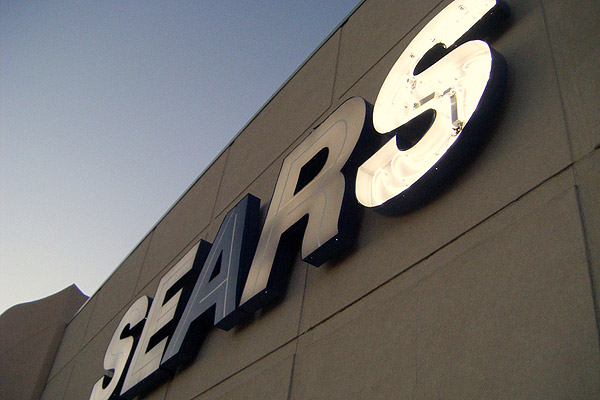
So a couple weeks ago what was supposed to be a relatively easy passage of legislation designed to cut the tax burden on both the CME Group and Sears died hard in the state House by a near unanimous vote—the victim not of opposition to the business tax breaks, but a hike in the earned-income tax credit and the personal income tax exemption. Legislators hoped to get it all through by separating the two bills, and it seems to have worked: the former passed the House 81-28, and the latter 67-49. When people talk about pushing something through a legislature, sometimes it's actually a lot like physically pushing a thing through another thing.
Some notes:
* The long and very public fight over the corporate tax breaks, drawn out by their failure and resurrection, may have a bright side in that it's cast a light on the state's taxation system. Say what you will about the CME Group, they have a legitimate beef about the corporate tax. Not only do they shoulder a large percentage of the state's total corporate tax revenues, they have to pay a corporate tax at all. Which, as Greg Hinz writes, is somewhat uncommon for Illinois corporations:
A new report released today by the Illinois Public Interest Research Group and others suggests that 68 of the Fortune 500 top corporations paid no state corporate income tax in at least one of the past three years. Two are from Illinois: Baxter International and Integrys Energy Group.
Those companies surely will have explanations. But the fact is, most Illinois-based firms do not pay corporate income taxes in any given year.
Illinois solution under Gov. Pat Quinn has been case-by-case reform: Come in and cut a deal.
Among CME's complaints is that corporations don't have to pay Illinois corporate taxes on sales that take place out of state. Meanwhile, CME pays taxes on transactions brokered between out-of-state actors that take place on their computers; if they were selling widgets, those transactions would be exempt. It might not seem fair from the raw numbers—CME is extremely profitable these days—and a lot of the heat has focused on the group's financial success. But within the context of other corporations, they have a logical complaint.
Which has been addressed, by the House at least, and that's nice. But it's a problematic system that favors corporations with effective lobbyists, and requires bureaucratic and legislative time that would be unnecessary under a system that's harder to game, and/or less necessary to do so. Hinz's solution:
The correct path is obvious: Overhaul the entire tax system, and then stick by the rules, rules which will have no meaning if they don't tell some companies, "Sorry, you don't get a special break."
That's one option, though it wouldn't clear the decks on lobbying. Illinois has a pretty simple corporate tax system, and companies are still going to seek any advantage they can, like Sears going after property-tax breaks. Another option would be to eliminate the corporate tax altogether and replace the state's regressive flat income tax with a modestly progressive graduated income tax, as I've discussed. NBC's Edward McClelland took up that torch recently, which Progress Illinois did excellent work on during the last gubernatorial election. It wouldn't be popular among corporate high-earners, but it would likely reduce the lobbying weight that comes with a corporate tax.
Either way, the back-and-forth between legislators, the Quinn administration, and the CME Group, the biggest local story of the past few weeks, has brought necessary attention to inequalities in the Illinois tax code, both among individuals and firms.
* Hinz also has a rundown on what other ornaments made it into the CME/Sears Christmas tree.
* Also from Hinz, on the homefront: Sara Lee is moving to the southwest Loop—it centralized Chicago, St. Louis and Cincinnati operations in Downers Grove, receiving $5.4 million from the state for it—because we're "buzzy, energetic," have public transportation, and willing to give them $10,000 per job—not quite as sweet a deal as MillerCoors got a couple years ago.
Photograph: bradleygee (CC by 2.0)


